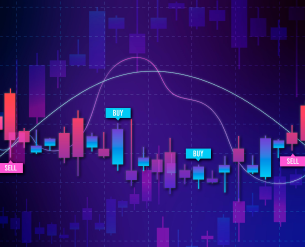Introduction:
In today’s fast-paced financial markets, the concept of Social Trading has emerged as a revolutionary way for both novice and experienced investors to participate in trading and investment activities. This article delves into the world of Social Trading, exploring its advantages, disadvantages, and providing insights to help you make informed decisions about incorporating it into your investment strategy.
What is Social Trading?
Social Trading is a modern investment approach that harnesses the power of social networks and technology to enable investors to connect, follow, and even automatically replicate the trading strategies of expert traders. It essentially allows individuals to trade like professionals, even if they have limited market knowledge and experience.
Advantages of Social Trading:
-
Accessibility: Social Trading platforms are user-friendly, making them accessible to traders of all experience levels. This opens up investment opportunities to a wider audience.
-
Diversification: By following multiple traders with different strategies, investors can diversify their portfolios effectively, spreading risk and potential for profit.
-
Learning Opportunity: Social Trading acts as an educational tool. Novice investors can learn from experienced traders by observing their strategies and decisions.
-
Time Efficiency: It saves time as traders don’t need to conduct extensive research or manage their portfolios actively. They can automate their trades based on the strategies of their chosen experts.
-
Transparency: Social Trading platforms provide detailed performance data of traders, ensuring transparency and helping investors make informed choices.
-
Community Engagement: Traders can interact with others, share insights, and discuss market trends within the Social Trading community.
Disadvantages of Social Trading:
-
Risk of Blindly Following: While Social Trading offers the opportunity to mimic experts, blindly following traders without understanding their strategies can lead to losses.
-
Over-Reliance: Investors might become overly reliant on social signals, neglecting their own research and analysis.
-
Emotional Attachment: Even with automated trading, emotions can come into play. Investors may panic or hesitate when their chosen trader faces a losing streak.
-
Costs: Some Social Trading platforms may charge additional fees or spreads for using their services.
-
Limited Control: Investors relinquish some control over their portfolios when following others’ strategies.
Conclusion:
Social Trading has redefined how investors approach financial markets, offering accessibility, diversification, and learning opportunities. However, it’s crucial to approach it with caution, understanding the risks associated with blindly following traders and the potential for emotional decision-making. As with any investment strategy, a well-balanced approach that combines research, analysis, and Social Trading can help optimize your investment journey.
Incorporating Social Trading into your investment strategy can be a valuable addition, provided you use it wisely and remain informed about its advantages and disadvantages.
Remember, successful investing requires a thoughtful blend of strategies, and Social Trading can be a valuable tool in your arsenal when used judiciously.

